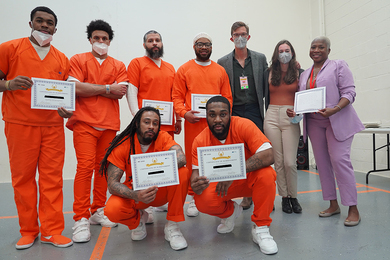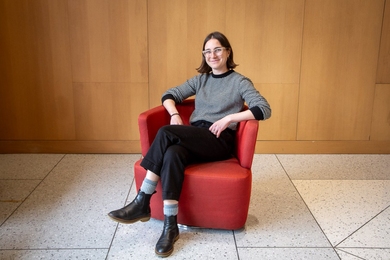Five appointments to career development chairs have been announced. The new CD professors are:
James E. Chung, to the Analog Devices Chair in electrical engineering and computer science.
Douglas J. Forsyth, to the Class of 1942 Chair in history.
Terry L. Orr-Weaver, to the Latham Family Chair in the Whitehead Institute/biology.
Gregory M. Papadopoulos, to the Class of 1922 Chair inelectrical engineering and computer science.
Ian Waitz, to the Rockwell International Chair in aeronautics and astronautics.
Professor Chung, the Analog Devices chairholder, is an expert in semiconductor devices who has been at MIT since January 1991. His research at MIT in the Microsystems Technology Laboratories involves extreme-submicron VLSI device physics, modeling and design; integrated circuit technology; and VLSI reliability. He received the BS in electrical engineering (1984), University of Illinois, Champaign-Urbana; the MS (1988), University of California, Berkeley; and the PhD (1990), UCal-Berkeley.
Professor Forsyth, the Class of 1942 Career Development Professor, is noted for his research on the political economy of 20th century Europe and for his innovative teaching. He is the author of the forthcoming Monetary and Financial Policy and the Crisis of Liberal Italy, which examines the political economy and the crisis of parlimentary government in Italy from 1914-1922. Professor Forsyth recently received a grant from the Minda de Gunzburg Center for European Studies at Harvard University to lead a collaborative research project on "Financial Institutions and Regulatory Regimes in Europe From the 1930s to the 1990s." He joined MIT in 1988 and holds the BA (1977), Reed College, and the MA (1983) and PhD (1987), Princeton.
Professor Orr-Weaver, the Latham Family Career Development chair, focuses her research on genes that regulate cell growth and cell division in Drosophila. She and her associates have characterized three genes that affect the distribution of hereditary material during the process by which chromosomes are separated during the formation of egg and sperm cells; identified two mutants in which the unfertilized Drosophila egg behaves as if it has been fertilized; established a timetable for the pattern of DNA replication during embryo formation; and furthered development of a model system for studying the regulation of DNA replication. Professor Orr-Weaver joined MIT and Whitehead in 1987 after postdoctoral research at Carnegie Institution, Washington. She did her undergraduate work at the University of California at San Diego. Her PhD in biological chemistry (1984) is from Harvard.
Professor Papadopoulos, the Class of 1922 Professor, is noted for his work in computer architecture, especially general-purpose parallel computer hardware and programming, and for the effectiveness of his teaching. He recently completed the design of the Monsoon data-flow computer. His broad technical background has allowed him to work effectively in both electrical engineering and computer science areas. He is currently involved in the revision of the 6.004 subject, Computer Architecture. He holds the BA (1979), University of California, San Diego, and the SM (1983) and the PhD (1988), MIT. He joined MIT in 1988 as a research associate and became an assistant professor in 1990.
Professor Waitz, the Rockwell International Professor, is interested in high-speed propulsion and flight, in particular matters which relate to reducing the environmental impact of aircraft. He conducts his research in the Gas Turbine Laboratory. Professor Waitz holds the BS (1986) in aerospace engineering, Pennsylvania State University; the MS in aeronautics (1988), George Washington University; and the PhD in aeronautics (1991), California Institute of Technology. His doctoral dissertation involved enhancing the combustion process in the supersonic combustion ramjet engines currently envisioned for applications on hypersonic vehicles.
A version of this article appeared in the March 4, 1992 issue of MIT Tech Talk (Volume 36, Number 22).





